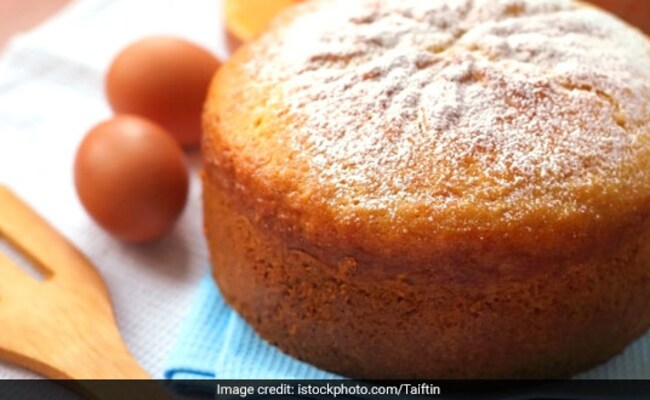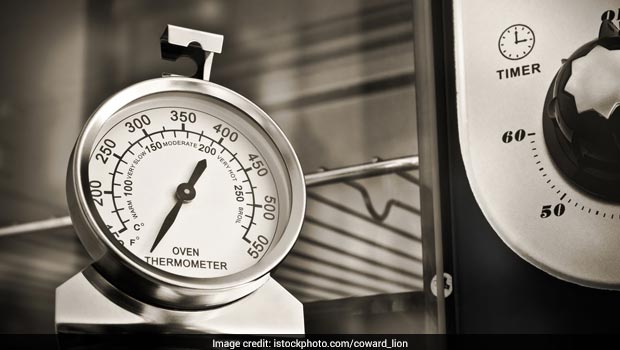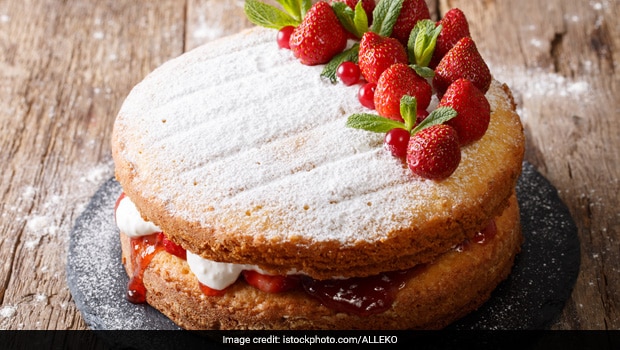Creating a dish from scratch is often exciting and therapeutic for many people. However, sometimes cooking - and baking, in particular - can get tricky if things don't go as planned. There are instances where despite repeated attempts, your favourite brownie or cake recipe does not yield the desired results. But before you give up and ditch the recipe altogether, check whether you are doing all the right things. One of the most common issues that people face while baking is the cake not rising. This can get quite frustrating causing people to even abandon the dish. But we have curated a special list of tips that will help to bake fluffy, soft and well-risen cakes every single time.

Baking tips: Master the art of baking with these simple tricks.
Here are 5 simple baking tips to ensure that your cake will always rise:
1. Get the exact ingredients and quantities
As a thumb rule, remember that since baking is more of a craft than an art it is important to get your ingredient and their quantities exactly right. You may think that adding a little extra butter or flour will make your cake batter better. On the contrary, it can ruin the dessert. For instance, too much butter or oil will end up making the cake too moist. Due to this the cake will not hold shape and will topple. Too much flour, on the other hand, will make the batter too dense and difficult to eat.
2. Get your leavening agents right
Cakes depend heavily on a leavening agent, the ingredient that causes them to rise. Leavening agents in cakes are most commonly baking soda and baking powder. These agents react with the liquids in the batter, releasing carbon dioxide and forming air bubbles. This, in turn, gives an airy consistency to the cake. Always make sure to read the recipe and see how much of the ingredients you need. Some recipes require just baking powder, while some also need baking soda. Also, using expired leavening agents can lead to flat cakes. So always read the label.
(Also Read: Easy Homemade Vanilla Sponge Cake Recipe For Beginners With Baking Tips)

Baking tips: Make sure you use correct quantities of leavening agents.
3. Watch the number of eggs
While eggs make the cake fluffy, too many eggs can leave a bad taste in the mouth. Too many eggs cause the cake to turn dense, making it difficult to swallow. In addition to the quantity, also note how much you are beating the eggs and at what temperature they should be at, while being added to the batter. All these factors can affect how well your cake rises.
4. Heating the oven at the right temperature
You may get all your ingredients and steps right, but if your oven temperature is incorrect the cake is bound to come out looking different from what you expected. If your oven is too hot, the cake will set before the air bubbles have a chance to form. Therefore, it will not rise. If it is lower than the required temperature, it will rise too much and collapse in the middle. So, always stick to the recipe when it comes to the oven temperature.
(Also Read: Lockdown Baking: 8 Helpful Tips Every Novice Baker Should Know)

Baking tips: Heat your oven at the correct temperature.
5. Check your timing
You have got the right ingredients, right quantities and even the right temperature. But if your timer is wrong, your cake will not rise. The most common tip is to keep an eye on the cake 2-3 minutes before the recipe's suggested end time, in order to not overcook your cake. If the cake smells and looks good, you can use a toothpick to check if the middle is cooked. However, if you get impatient and take the cake out much before the prescribed time, it will sink.
Next time you get ready to bake, keep these tips in mind and you'll soon be munching on a perfectly- risen, fluffy, yummy cake.









